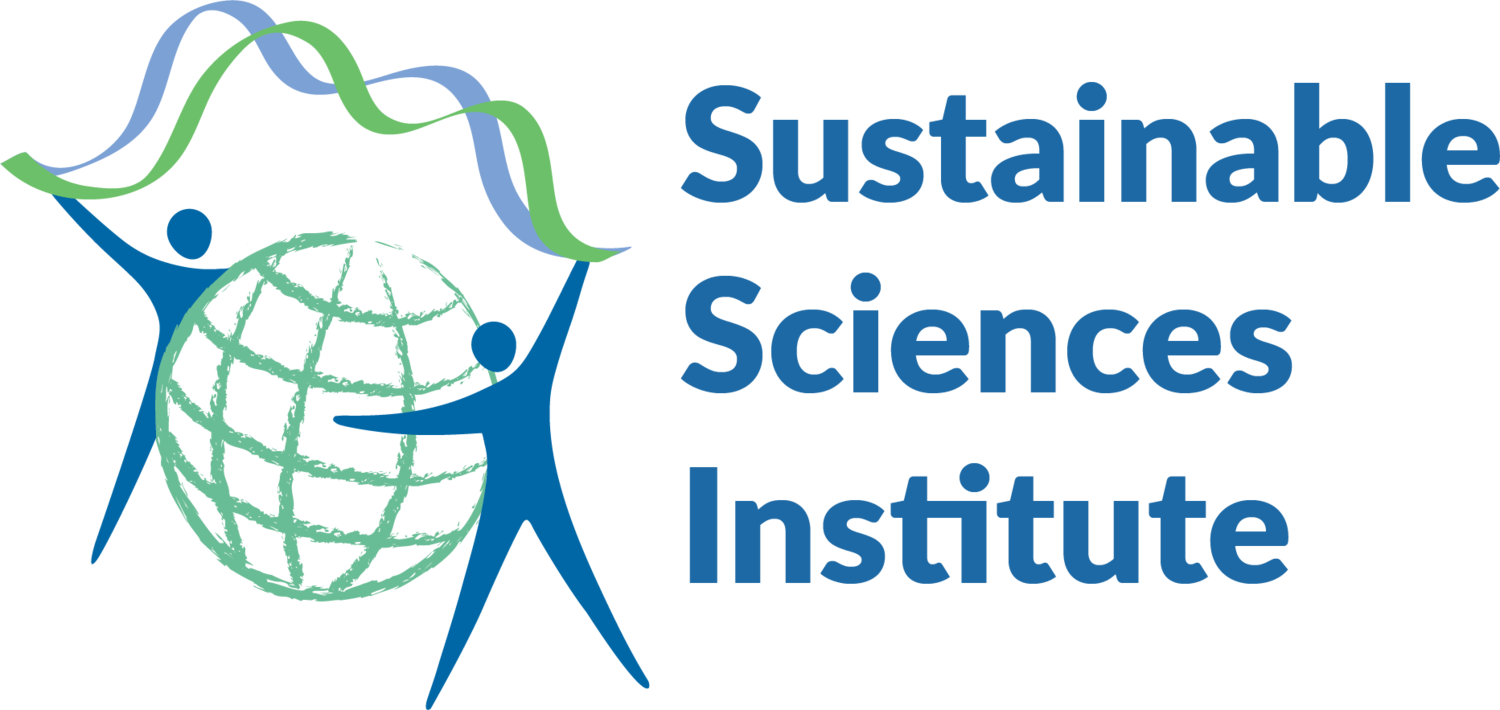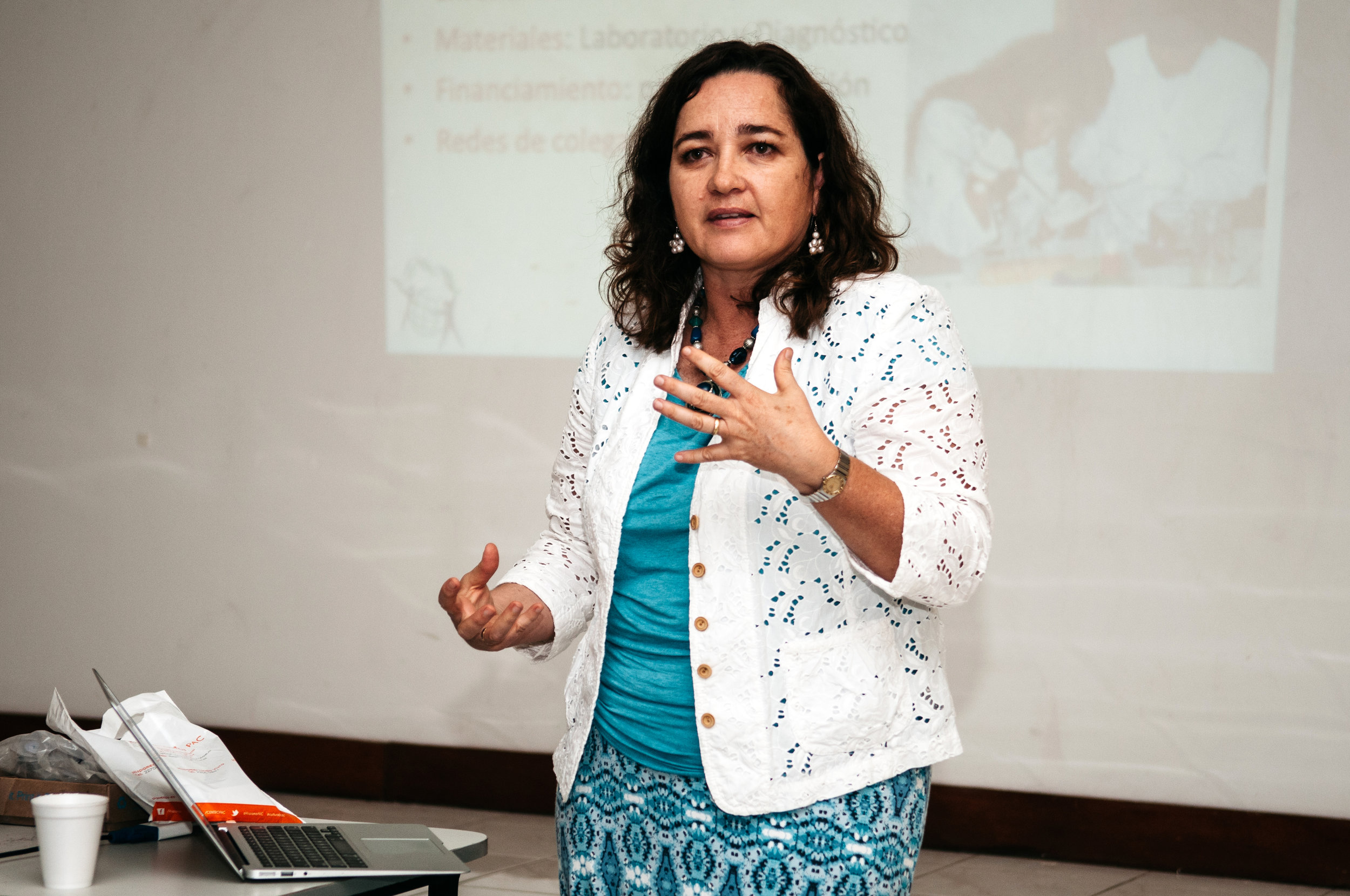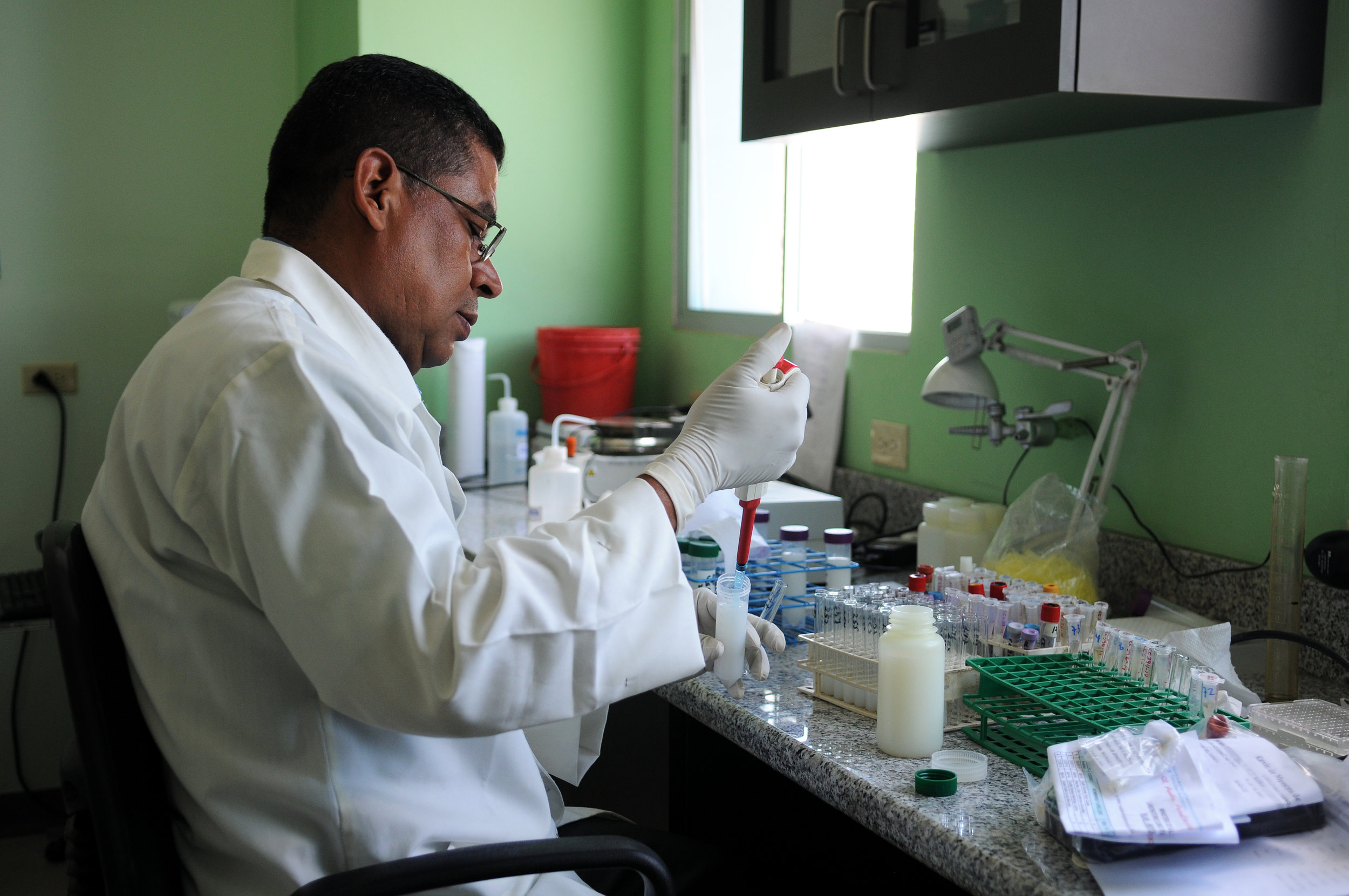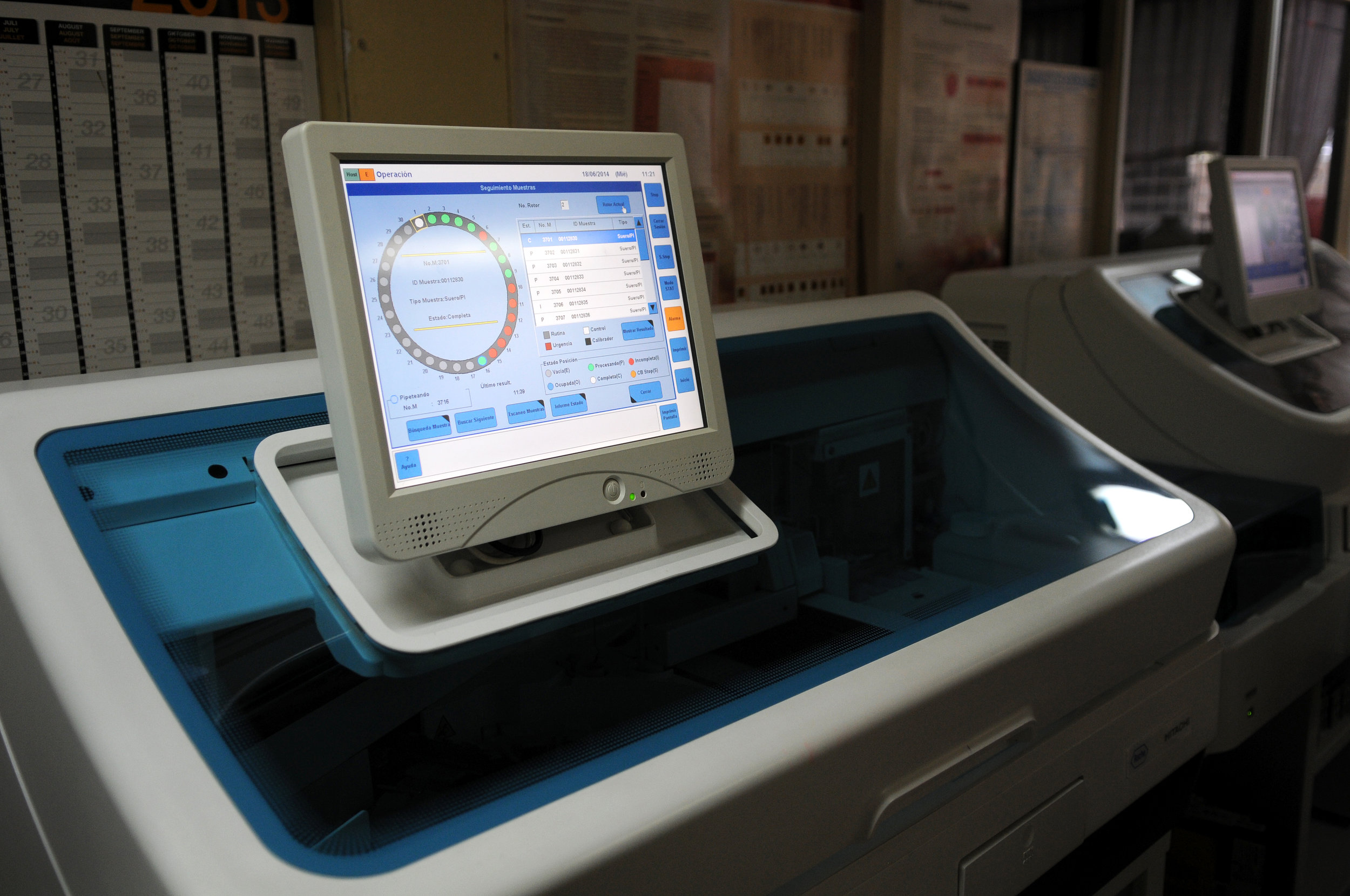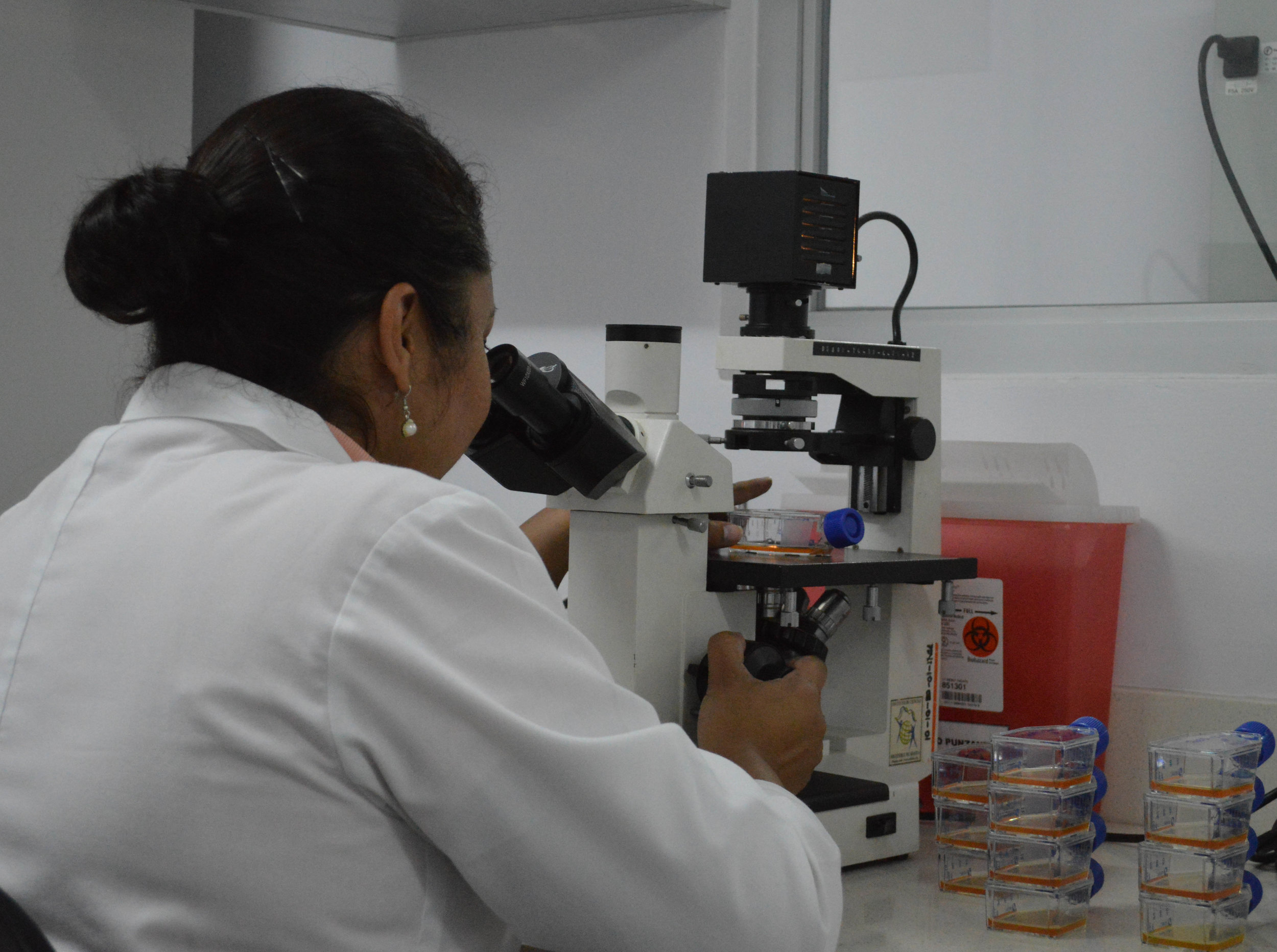Capacity Building
Sustainable Sciences Institute’s capacity building programs provide researchers in limited resource settings around the world the skills and tools they need to make a difference in the public health of their communities.
We work with governments to allow science to thrive in countries lacking resources and economic stability. Incorporating the most appropriate technologies for the local conditions, SSI fosters local autonomy in science, and the use of of sustainable products and systems to optimize the allocation of already scarce resources.
We offer training workshops in three broad categories:
Laboratory Techniques, Diagnoses, & Epidemiology
We train participants in diagnostic, epidemiological, serological, and cell culture (e.g., virus isolation) techniques to combat the diseases prevalent in their communities.
Our workshops strengthen the participant's ability to understand and identify these diseases. We incorporate local scientists in the planning and teaching process to encourage sustainable knowledge transfer. During each workshop, we train several participants in SSI’s instruction methods. These instructors-in-training take on an active role in workshop management and organization, going on to teach future trainings at their home institutions and elsewhere, thus multiplying the number of people reached.
Scientific Writing
Scientific Manuscript Writing
The scientific community evaluates scientific credibility in part by the quality and quantity of research publications that a scientist has published in peer-reviewed journals. Scientists in limited resource settings have been at a disadvantage in competing for funding and support because of many obstacles in the publishing process. Our workshops provides scientists with the skills they need to take their existing data and transform it into publishable material. Appropriate mentors are matched with participants based on discipline and technical writing skills, resulting in a first draft of their manuscript by the end of the workshop.
Grant Proposal Writing
All scientists depend on grant funds to perform their research studies. Scientists in developing countries are often unable to compete for grant funds due to a lack of writing skills and guidance in the submission process. These workshops focus on providing scientists with the skills they need to compete successfully for already scarce funding opportunities. One-on-one tutoring is provided from paired mentors, and the end of each workshop, students have a solid first draft of a grant proposal ready for submission.
Special Topics
We offer additional workshops in a flexible format that caters to particular needs of groups as requested.
Ethical Issues in Health Research
Scientific research presents a myriad of ethical dilemmas. In addition to the issues faced by all researchers, researchers in the developing world are faced with the ethical implications of international collaborations and in many instances, lack of knowledge on how to make informed decisions about the ethical issues they face. The Ethical Issues in Health Research Workshop presents participants with a range of ethical dilemmas including: informed consent, research on human subjects, genetic research, and a research study’s responsibility to the community. As part of the interactive workshop, participants learn about the procedures in human subject research and are presented with a variety of case studies that are examined and discussed. This workshop enables participants to make informed decisions and influence local decision-making on the ethical issues that affect their research and their communities.
Bioinformatics and Genome Sequence Analysis
In an age of deep sequencing technology, genetic information is overwhelmingly abundant. However, despite the colossal amount of data and software available for free online, most bioinformatics research is done in developed nations. Our Bioinformatics and Genome Sequence Analysis Workshop bridges the gap, by teaching developing country scientists how to access public domain genetic data and use phylogenetic analysis programs to perform bioinformatics analysis on sequences generated from local microbial genetic material. The workshop involves a demonstration of the analysis of DNA/RNA sequences of infectious diseases relevant to the trainees. After the demonstration, participants are given the opportunity to conduct a similar analysis, thus providing them with greater understanding of the process and the capacity to expand their research.
Impact Assessment for Public Health
This workshop provides participants with the ability to distinguish research-based “good practices” from those that have not been rigorously evaluated. Workshop content includes the basics of impact evaluation theory (causal inference, experimental design, basics statistics, etc.) and methods (randomization, difference-in-difference, regression, discontinuity, propensity score matching, etc.) as applied to public health interventions in underserved communities. As part of the training, instruction sessions are complemented by case studies, hands-on experiences with research design and data analysis are offered, and participant groups receive feedback from the instructors as well as the other workshop participants in an interactive and collaborative forum following a presentation of their own impact evaluation research plan.
eHealth Decision Making: Information and Communication Technologies in Public Health
The primary learning objective of the eHealth and Information and Communication Technologies (ICT) for Public Health Workshop is to provide participants with: 1) an overview of the state of eHealth tools currently available for use in the public health sector; 2) a familiarity with specific health information management and mobile health data collection systems and software (with a focus on open source tools); and 3) an understanding of the opportunities and challenges that exist in implementing ICT systems depending on a particular set of infrastructure limitations (internet connectivity, cell phone coverage, electricity and power needs, etc.), cost barriers, and information security needs. Workshop content is targeted at 3 main stakeholder groups: healthcare managers and decision makers in the public sector (Ministries of Health), primary care professionals and public health workers, and health informatics and technical specialists. As part of the training, instruction sessions are complemented by case studies, hands-on experiences with various existing software (patient medical record systems, inventory tracking systems, mobile data collection tools) and hardware (mobile phones, PDAs, netbooks) are offered, and participant groups receive feedback regarding their specific information technology needs from experts in the eHealth field. Workshops will be tailored to the content areas most appropriate for participants, with a flexible format designed to incorporate the rapidly evolving changes in the field of ICT for Health.
**Laboratory Information Management Systems: Virology**
The primary learning objective of the Laboratory Information Management Systems Workshop is to provide virology researchers and associated data managers with: 1) an overview of laboratory information management challenges and opportunities; 2) a familiarity with sample storage, tracking and inventory management systems (including barcode identification and scanning systems, labeling and cold storage issues, etc); 3) an understanding of how to create automated work protocols for molecular biological, serological, and cell culture techniques; 4) how to use information technologies to improve quality control and Good Laboratory Practice (GLP) compliance; and 5) hands-on experience with software tools and database management systems currently available (e.g., PDAs, bar codes, etc.). Workshop content is targeted at laboratory data managers and informatics specialists as well as laboratory technicians. As part of the training, instruction sessions are complemented by examples of laboratory information systems for managing virology research and diagnostic labs, and training on web-based or web-enabled software for data collection, quality control, analysis, and presentation. Workshops will be tailored to the content areas most appropriate for participants, with a flexible format designed to incorporate the rapidly evolving changes in the field of information technologies and laboratory diagnostic and reporting needs.
Training Resources
SSI provides a number of links to other organizations that can help with general research information, networking and sources of funding. Please let us know if there is anything else you think we should include.
Third World Academy of Sciences The Academy offers fellowships for postgraduate and postdoctoral training, fellowships for research and collaborative projects, and research grants of up to 10,000 USD for equipment and consumables. Click on the section marked “Activities.”
Science & AAAS (Science Careers Grants & Funding) Free database listing grant and training opportunities for students and faculty at all educational levels, including undergraduate. For research outside the U.S., there’s a special “International Grants and Fellowship Index.”
UK Department for International Development (DFID) Offers a variety of funding opportunities, including the Small Grants Scheme; the Emerging Africa Infrastructure Fund; and the Global Health Initiatives and Global Health Fund.
Japanese International Cooperation Agency (JICA), Regional JICA in Latin America Provides grants-in-aid and on-site technical assistance and collaboration for development projects and public health research.
US Agency for International Development (USAID) USAID works with universities, businesses, and other partners in developing countries. Under “Locations” you can find the regional offices and programs of the Agency.
Fogarty International Center, US National Institutes of Health Under “Funding Opportunities,” “Programs and Initiatives,” and “International Services,” you can find guidelines for applying for NIH grants; listings of biomedical research and training grants to individuals; grants to research institutions; and more.
W. K. Kellogg Foundation Funding for education and health-related projects in Latin America and the Caribbean. In Spanish, Portuguese, and English.
Wellcome Trust Tropical Medicine Programme Offers numerous funding opportunities, including equipment grants, project grants, and training fellowships. Look under “Biomedical Sciences” for listings relevant to Immunology and Public Health.
Community of Science Databases Searchable databases of 400,000 funding opportunities and experts in different disciplines. You can also post your own research profile. Institutional subscription required.
Third World Network of Scientific Organizations Offers grants for collaborative research involving 2-3 research institutes in the South. Grants can be up to 30,000 USD. One of the collaborators must from one of the 50 nations designated as a Least Developed Country by the U.N.
Carnegie Corporation of America Provides grants for international development and education within the U.S. and in countries of the former British Commonwealth. International Development Program (IDP) focuses on Commonwealth Africa with initiatives to strengthen African universities.
John D. and Catherine T. MacArthur Foundation Through its Program on Global Security and Sustainability, the organization offers grants in Population and Reproductive Health for projects in India, Mexico, Nigeria, and Russia.
Swedish International Development Cooperative Agency (SIDA) Offers research grants in natural sciences and health research for researchers in developing countries. Click on “Apply for Grants” at left, and then “SIDA’s Grants for Researchers” at left, to find a description of grant possibilities.
Canadian International Development Agency Offers funding opportunities for projects in health and nutrition and HIV/AIDS. Find out more at “Your Guide to Working with CIDA” under “Key Resources.”<
Rockefeller Foundation Click on “Grants and Grantees” along the top of the page for a description of funded initiatives. Has funded projects to create health research networks, to run biomedical research initiatives, and to organize scientific conferences.
Ciencia y Tecnologia Para el Desarrollo (CYTED) Offers grants for research projects in Argentina, Bolivia, Brasil, Chile, Colombia, Costa Rica, Cuba, Ecuador, El Salvador, Guatemala, Honduras, México, Nicaragua, Panamá, Paraguay, Perú, Portugal, República Dominicana, Spain, Uruguay and Venezuela.
UNICEF-UNDP-World Bank-WHO Special Programme for Research and Training in Tropical Diseases (TDR) Lists grant opportunities for projects in public health project areas, such as leishmaniasis, Chagas disease, malaria, Dengue, and tuberculosis. “TDR Grants” lists funding not only for individual projects, but also for infrastructure building.
Pan American Health Organization Lists numerous funding opportunities, including graduate thesis grants, research training grants, multicenter comparative study grants, and biomedical research grants.
Research Council of Norway Offers short-term research trips for researchers who are citizens of China, India, and Egypt. Also offers long-term research stays for advanced students and young researchers.
